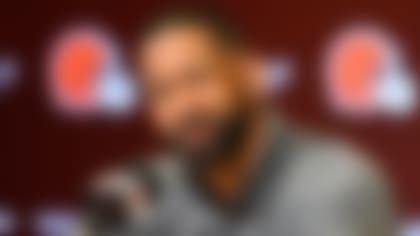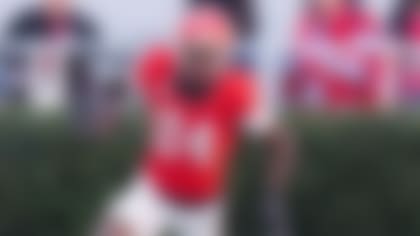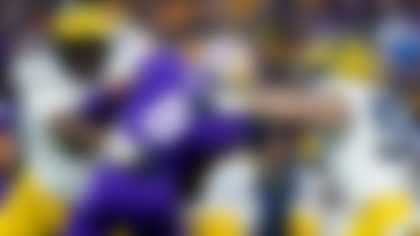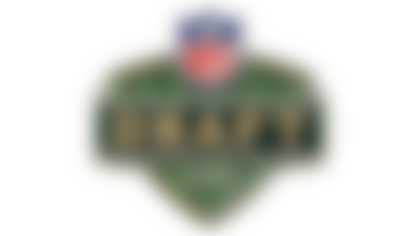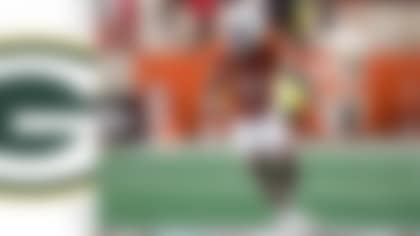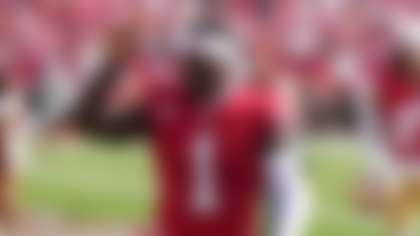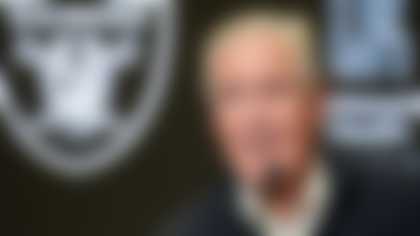The struggle is real in San Francisco.
Colin Kaepernick can be one of the most effective quarterbacks in the NFL -- when used properly.
Over the past two weeks, Kap's looked like a true franchise signal caller, completing 39 of 62 passes for 602 yards, four touchdowns and zero interceptions -- good enough for a sparkling 116.5 passer rating. Outside of Russell Wilson, no other quarterback has rushed for more yards this season.
But the San Francisco 49ers are 2-4, tied for last place in the NFC West. This past Sunday's win over the Baltimore Ravens snapped a four-game losing streak.
So what's the problem?
The 49ers are trying to put a square peg in a round hole, leading to inconsistent play at the game's most important position.
The current offense doesn't maximize Kaepernick's raw athleticism and running ability, which has proven to be wildly successful in the past (especially under Jim Harbaugh). Combine that with the reality that Kaepernick developed the majority of his high-level playing skills in an offense that has limitations when it comes to quarterback development, and we have a real problem in San Francisco.
In 2011, when San Francisco traded up nine spots to draft Kaepernick 36th overall -- the fourth pick in the second round -- Harbaugh had a master plan. Most teams build offenses around the quarterback; you see it in New England with Tom Brady and in Green Bay with Aaron Rodgers. But with Kaepernick, Harbaugh built the offense around the running game. During the 2012 season, the 49ers had the second-fewest pass attempts in the NFL, Frank Gore rushed for the 1,214 yards, and offensive linemen Mike Iupati and Joe Staley both made the Pro Bowl. Kaepernick thrived with a stellar supporting cast, when he didn't have to be the focal point of the offense.
Since then, key personnel changes and a lack of movement in the pocket have had a major impact on his effectiveness. Also, Kaepernick's poor throwing mechanics and erratic footwork are well-documented.
But the 27-year-old QB's biggest flaw is his inability to go through progressions.
Elite NFL quarterbacks survey the field and dissect defensive coverages in the pre-snap phase. So before the ball is snapped, the best QBs already have ruled out certain options. This skill is not inherited -- it is learned. Unfortunately, Kaepernick doesn't have that training.
As a star college quarterback at Nevada, Kaepernick played under head coach Chris Ault, the man who created the pistol offense. Running this scheme to near perfection, Kaepernick accumulated 14,210 total yards (10,098 passing, 4,112 rushing) as a four-year starter. Mind-boggling numbers, for sure, but Kaepernick was never asked to diagnose sophisticated defenses or go through progressions to find the open receiver. In the pistol formation, the quarterback lines up about 4 yards behind center, closer than the typical set in a traditional shotgun formation. The shortened distance makes it easier for the quarterback to read the defense at the line of scrimmage, but also limits the amount of time he has to go through passing options. In most situations, the quarterback is asked to read high/low/run. So his progressions are: 1) throw the deep route; 2) throw the short route; or 3) run the ball. This explains why Kaepernick has lost his dynamism in a more traditional NFL offense. Six games into his fifth NFL season, Kap continues to struggle with surveying and dissecting complicated pro defenses.
When the 49ers awarded Kaepernick with a big contract extension, it came with an unwritten predicament:
Do they focus on short-term success or strategize for long-term utilization?
This is the dilemma 49ers GM Trent Baalke and head coach Jim Tomsula face in regard to using their franchise quarterback today. Short-term success means allowing him to run and maneuver around the pocket, but that doesn't bode well for his longevity. Of course, the 49ers have to play to their quarterback's strengths in order to make the investment worthwhile in the first place.
But if past performance is any indication of future results, the Niners must proceed with the caution against the Seattle Seahawks on Thursday night. In six starts against Seattle (including one postseason game), Kaepernick has managed just three touchdown passes against nine interceptions, completing just over 53 percent of his passes. Not surprisingly, San Francisco has gone 1-5 in those games.
Will we see vintage Kaepernick, building on his current two-game roll? Or ineffective Kaepernick, trying to be something he's not? We'll find out Thursday night.
Follow Darius Walker on Twitter @dariusawalker.
